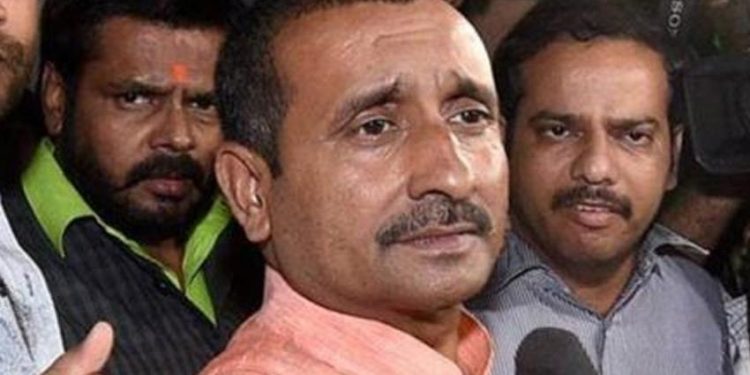New Delhi: The Delhi High Court Friday admitted an appeal filed by disqualified UP MLA Kuldeep Singh Sengar against his conviction in a case relating to the custodial death of the Unnao rape victim’s father.
A single judge bench of the high court presided by Justice Vibhu Bakhru admitted the appeal filed by Sengar through advocate Kanhaiya Singhal, wherein he has challenged the trial court’s order convicting him and others in the case of the custodial death of the Unnao rape victim’s father.
The court has asked the Central Bureau of Investigation to respond to the appeal filed by Sengar and has also transferred the matter to another bench, which is already hearing another appeal filed by Sengar in connection with the rape case and listed it for further hearing November 10.
Advocate Kanhaiya Singhal submitted that in the present case neither was justice done nor seen to be done which has certainly shaken the confidence of the public in the entire justice delivery system.
“It is a well-settled principle of law that ‘enmity is a double-edged sword which can cut both ways’, however, little did Sengar know that one fateful day he would also fall prey to one such double-edged sword unleashed by one Mahesh Singh, a history-sheeter and a gangster for satiating his thirst to avenge his political rivals,” Singhal submitted.
A Delhi court on March 4 this year convicted seven persons, including expelled BJP legislator Kuldeep Singh Sengar, in the case of the murder of the Unnao rape survivor’s father.
District Judge Dharmesh Sharma held them guilty under various sections of the Indian Penal Code for offences such as conspiracy, culpable homicide, disappearance of evidence, framing incorrect record and wrongfully restraining a person, and the Arms Act.
Later March 13, the court sentenced Sengar and six others to 10 years imprisonment. While sentencing them, District Judge Dharmesh Sharma said, “There can be no denying that rule of law was broken. Sengar was a public functionary and had to maintain the rule of law. The way the crime has been committed, it does not call for leniency.”
IANS






































